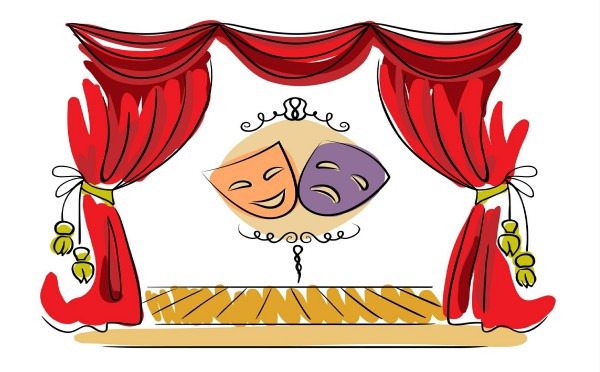Definition and examples of Drama
Definition and examples of Drama:
Generally, a literary work was written in DIALOGUE is to be performed before an audience by actors on a stage. Essential to all forms of drama are a story, action that develops the story, and actors who impersonate the CHARACTERS of the story. In this sense, the term drama identifies anything from TRAGEDY to MELODRAMA, from HIGH COMEDY TO FARCE. More specifically, a drama is a serious, generally realistic PLAY that, while not of the magnitude of a grand tragedy, cannot be categorized as a comedy. And in the broadest sense, drama refers to the composition and performance of plays.
The drama had its origins in religious ceremonies. Greek comedy evolved from Dionysian fertility rites; Greek tragedy, from rites concerned with life and death. MEDIEVAL drama evolved from rites commemorating the birth and resurrection of Jesus Christ. Beginning with the RENAISSANCE, drama has continued to develop new FORMS and STYLEs. For example, the early drama was poetic; PROSE dialogue was introduced in the sixteenth century.
By the eighteenth century, prose had become dominant, due largely to the demands of a rising middle-class audience for more contemporary subjects and THEMES. Despite continuing experimentation and innovation, however, the basic elements of drama have remained essentially unchanged. Drama is still, as Aristotle called it, "imitated human action" presented through dialogue for the entertainment and instruction of an audience.
See ABSURD, THEATER OF THE; CHRONICLE PLAY; COMEDY; DRAMATURGY; EPIC THEATER; MASQUE; MELODRAMA, MIRACLE PLAY; MORALITY PLAY; NO DRAMA; ONE-ACT PLAY; TRAGEDY.












No comments:
Post a Comment